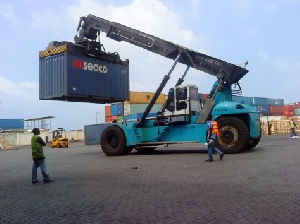The Ghana Cargo and Haulage Transport Owners Association are threatening to ground all its vehicles and cease operations if the Ministry of Roads and Transport does not revise the new policy on axle load for cargo vehicles.
A new policy, revising the axle weight for cargo and heavy duty vehicles from the current 60 tons per vehicle to 51 tons is expected to come into effect by January next year, but members of the association believe the move could have serious repercussions on the general business environment in the country.
According to the members of the association, not only will the directive affect their businesses, but also have negative economic consequences on the country at large, and consumers in particular.
The new policy, according to the Ministry, is to help protect the country’s tarred roads and prolong its life pan as heavy axle loads have been identified as one of the major causes of the destruction of our roads.
The axel load policy had not been harmonized in ECOWAS, according to a study of perspectives of transport sector stakeholders that was initiated by Ghana National Cargo Transporters Association (GNCTA) with support from the BUSAC Fund.
According to information, the new policy has been ratified by the Parliament of Ghana and it is expected to become operational next year, a decision which is currently a source of worry to some stakeholders in the industry, including the Cargo and Haulage Association.
The Spokesperson of the Association, Mr. Eric Atta told The Chronicle in an interview that little consultation was done in the process of arriving at the new axle load policy. According to him, they expected the Government and for that matter the Ministry of Roads and Transport to have done wider consultation by engaging them on the new policy to ensure that all parties were adequately satisfied.
He noted that as it stands now, the new axle load requirement will affect transport and industrial business as it would slow the smooth movement of goods and other raw materials from one place to another. “We all know the role that cargo and haulage transporters play in the industrial and the infrastructural sector; now that this policy is coming into force, many more goods will be locked up at the ports and work will slow down,” he lamented.
He further pointed out that the decision will increase cost of business and production as owners will be compelled to increase their charges to deflate other costs that may be incurred. Eric Atta therefore warned that if the Ministry does not accede to their request, they will have no choice than to cease operations and ground their vehicles from operating.
Business News of Sunday, 1 December 2013
Source: The Chronicle













